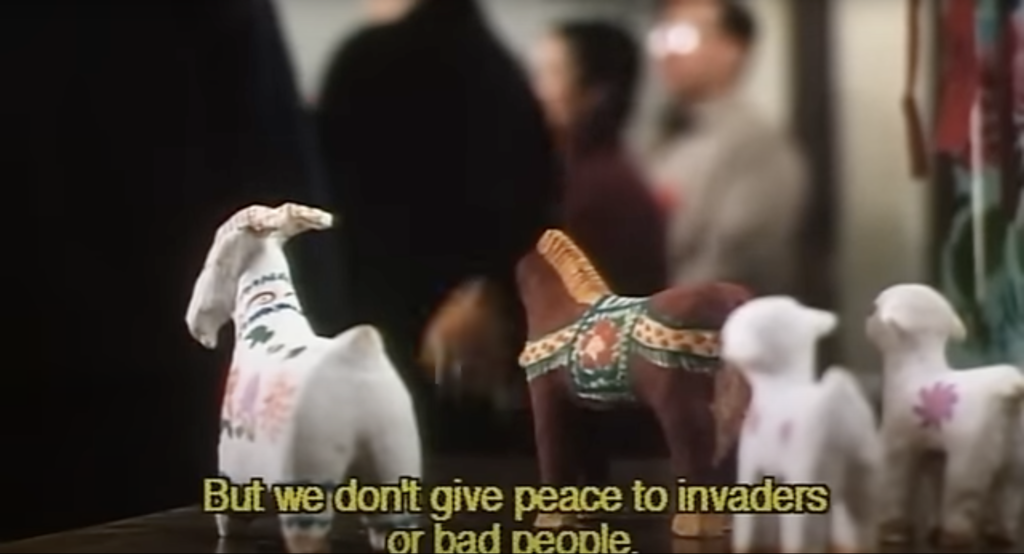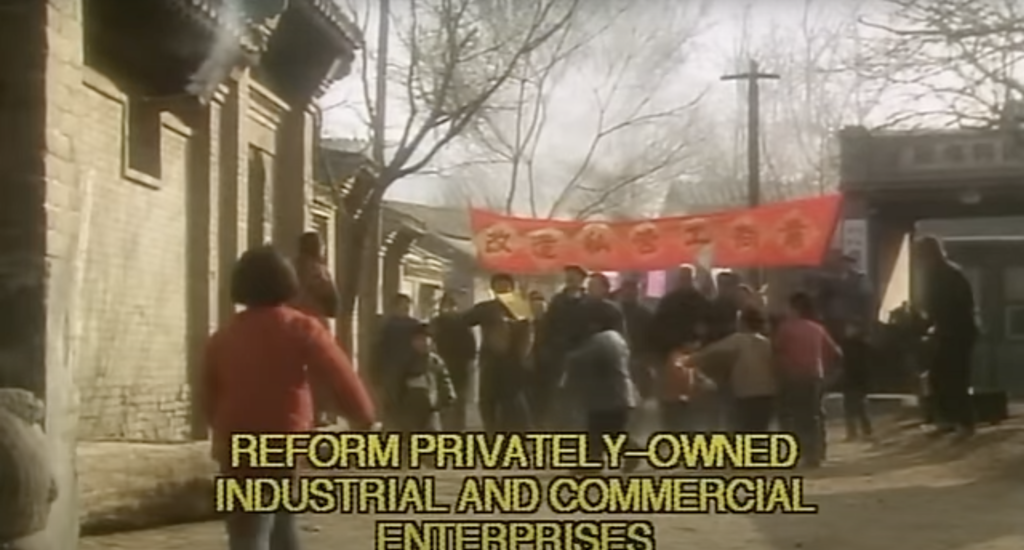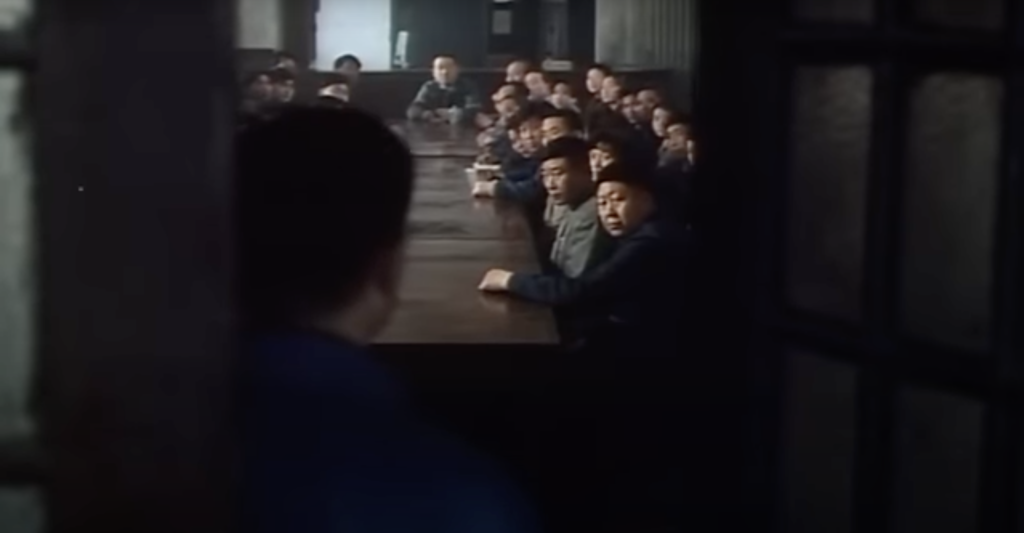The story begins in the 1950s, with the marriage of two young couples. The husband Lin works in a library, while the wife Chen teaches at a primary school. Their wedding demonstrated unfavourable signs, it was first delayed for ten days due to Stalin’s death, and on the wedding day, the head of a pottery horse gifted by Lin’s friend Li fell off. Those omens seem to foreshadow their miserable destiny.

A year after their marriage, they had a son named Lin Dayu, and his nickname is called Tietou, meaning iron head. This is a common nickname, often meaning strong and stubborn. They rented a house in Beijing, and Mrs. Lan is their landlord.
1954, the communist party of China, which is currently the government of China presented a policy to reform the private sector. Mrs. Lan’s father was a major landowner from the old times, and she also held several properties and stores, therefore, she was marked as a capitalist at that time. This policy pressured her, to avoid trouble, so she handed her stores to the government and reduced the rent collected from her renters. Her reactions are the first signal to the audience regarding the intensity between the Bourgeoisie and the Proletariat represented by the government, specifically, the proletariat’s persecution towards the Bourgeoisie. This unbalanced reversal of power dynamic is especially common in the early stage of communist societies.

The next significant event happened in 1957 when the Yan’an Rectification movement was initiated. Historically, this movement aims to clear the subjectivism, sectarianism, and bureaucracy within the government. Eventually, this movement cleared opposition and reinforced Chairman Mao’s dominance in the government. Although the focus of this movement is placed within the government, the influence also radiates to the civilians. The Library where Lin works enacts a response to this movement, to conduct rectification within the library by finding the reactionists. During a meeting, Lin went to the bathroom when they were voting to identify the reactionist. Absurdly, he was voted to be a reactionist as he comes back from the bathroom, with no logical accusation, being odd by going to the bathroom suffices for him to be convicted, Through this absurd accusation, the director critiques the society at that time, for being too impetuous and aggressive, leading to frequent incidences of injustice.

Lin was then assigned to be reformed in Qinghai Lake. It was a famous policy of Mao’s government to reform and educate the Bourgeoisie by sending them to the harsh rural areas so that they could experience how the Proletariat suffered. Such policy is frequently critiqued, as the intellectuals are classified into the Bourgeoisie, requiring reformation on them. This causes the high-skill jobs to meet vacancies, this also breaks the family apart, and moreover, the Bourgeoisie are often mistreated in the rural areas during their reformation. Lin, as the victim of reformation, died due to an accident in Qinghai Lake — he was hit in the head by a big tree that was just sawed.
The movie continued describing Chen’s miserable life after the death of her husband. She remarried a man called Li, who also died due to malnutrition during the Great Chinese Famine…
Through the description towards the family’s suffrage after one real historical incidences, the director critiques the inconsiderate, radical actions taken by the government in the early stage of the Chinese Communist Party. This critique also caused this movie to be banned in the mainland for decades. However, it vividly reflects how the middle class suffered under the social environment at that time.
